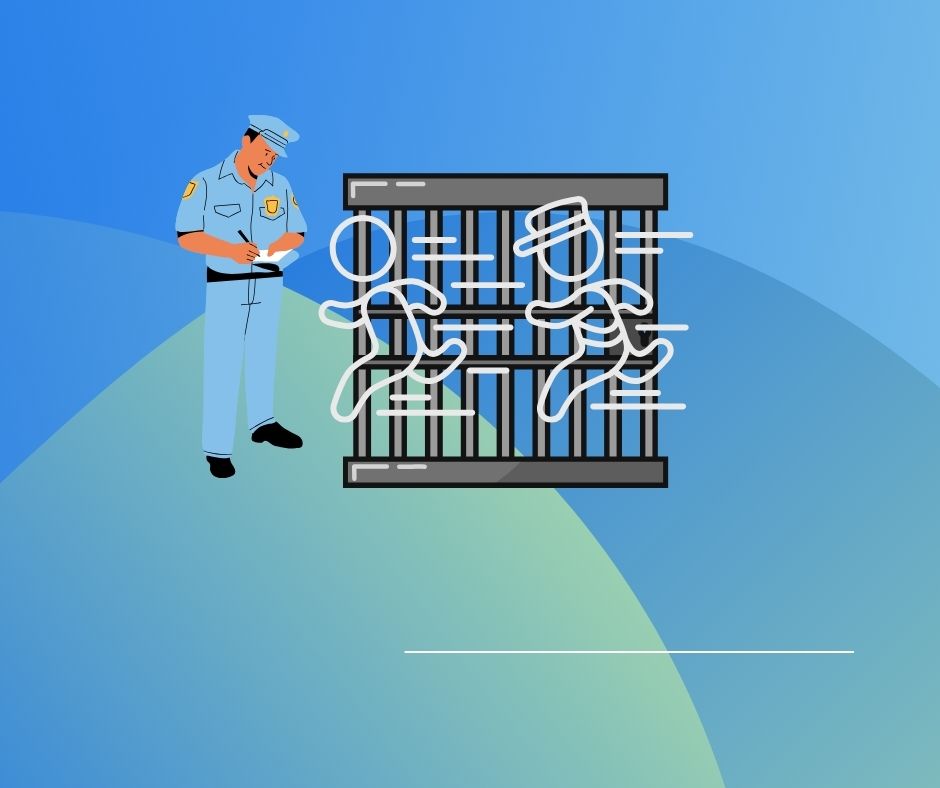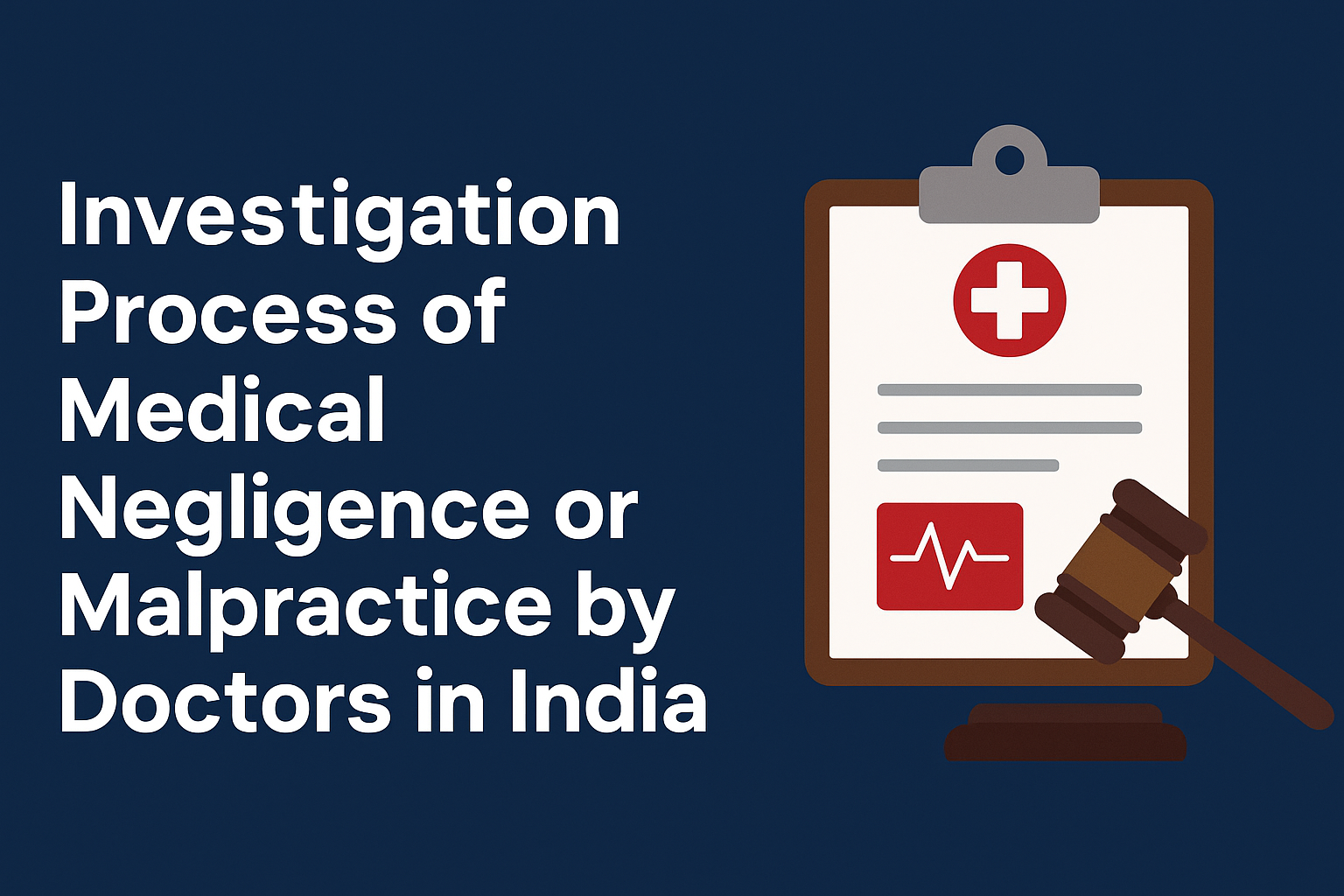Misuse of First Information Report (Fir)
Introduction
As a coin has two sides , the very same goes with the rights and their misuse by the respective personnels. F.I.R commonly known as First Information Report is a mechanism which has been introduced with the purpose of helping the aggrieved parties or the victims but it has been seen lately that people are misusing this mechanism. One cannot solely make responsible the authorities with regard to it as , we the people of our beloved country also misuse this mechanism out of vengeance leading to fabrication or false F.I.R.
When police learn of a crime that can be prosecuted, they prepare a written record known as a First Information Report (FIR). It is known as the First Information Report because it is a report of information that initially reaches the police. For a police officer to register a case, the information they provide must be genuine.
Reasons to file FIR
There are numerous reasons to file a FIR, which is to say
(1) to condense information that, if spoken disclosed, reveals the conduct of a crime into written form.
(2) If provided in writing, the complainant must sign it.
(3) To keep track of information received about the commission of crimes that are subject to criminal prosecution.
(4) To start an investigation after learning of a crime that must be investigated.
(5) To promptly report the facts of the information to the magistrate.
Qualifications to file a FIR
Regarding who is eligible to file a FIR, there is no hard-and-fast rule. Information about the commission of a cognizable offense can be provided by anybody, and the victim of such an incident need not be the only one to file a formal complaint. The police officer who learns of the commission of a crime that is punishable by law may even file it. But it may be summed up like this:
1. If you have witnessed the commission of a cognizable criminal
2. If you are the victim of a cognizable offense
3. If you have knowledge regarding the occurrence of a cognizable offense that shouldn’t be hearsay, you may file a formal complaint.
FIR Types
Different kinds of FIRs exist. Here are a few of the most significant ones:
- FIR: A general FIR is one that is submitted to the closest police station by the first party or the party who feels wronged in a general transaction.
- Zero FIR: The moniker “Zero FIR” comes from the fact that it is assigned the number “0” (zero) rather than a serial number. Regardless matter where the crime was committed, it is documented. The police station forwards the Zero FIR to the jurisdictional police station where the offense occurred. The Zero FIR is given a serial number and becomes a regular FIR after it is received by the proper police station.
- Cross-FIR: Following the filing of the FIR, the other party (the accused) may file a FIR against the complainant. This is referred to as a counter-FIR or cross-FIR.
- The counter-FIR may be filed out of personal resentment or with the intention of confusing the court, or it may be used as a ploy to get the complainant to drop the original FIR and negotiate a future settlement.
- Multiple FIRs: When resentful parties file more than one FIR with the same cause of action, this is known as multiple FIR. Only if the subsequent informant provides an entirely different description of the purported incident will several FIRs be filed.
Section 173 addresses information in cognizable instances. Any report of a cognizable offence can be submitted orally or electronically to the officer in charge of the police station, regardless of where the offence occurred. If this information is provided. If reported orally, the informant must write it down and sign it after it has been read to them.
If reported electronically, it must be signed within three days by the person giving it and recorded in a prescribed format The details of the information should be entered into a designated book in a format specified by the State Government. Additionally, if the information is provided by a woman who is allegedly a victim under Section 64, Section 65, Section 66, Section 67, Section 68, Section 69, Section 70, Section 71, Section 74, Section 75, Section 76, Section 77, Section 78, Section 79 or Section 124 of the Bharatiya Nyaya Sanhita, 2023, it must be recorded by a female police officer or any female officer authorised for this purpose.
Provided that-
In the event that the person against whom an offence under Section 64, Section 65, Section 66, Section 67, Section 68, Section 69, Section 70, Section 71, Section 74, Section 75, Section 76, Section 77, Section 78, Section 79, or Section 124 of the Bharatiya Nyaya Sanhita, 2023 is alleged to have been committed or attempted, and such person is temporarily or permanently mentally or physically disabled, the information about the alleged offense will be recorded either at If necessary, an interpreter or special educator will be present during the process.
Such information must be recorded in video format.
The police officer must ensure that the person’s statement is promptly recorded by a magistrate as per the provisions of clause (a) of sub-section (6) of Section 183.
A free copy of the recorded information from subsection (1) must be provided to the informant or the victim.
Apart from what is stated in Section 175, when the police station receives information about a punishable offence with a sentence of three to seven years, the officer in charge can, with permission from a Deputy Superintendent of Police, either conduct a preliminary Inquiry within fourteen days to determine if there is a basis to proceed or proceed directly with the investigation if there’s sufficient evidence to suggest wrongdoing.
On failure of these steps aggrieved can approach magistrate
The BNSS also includes provisions for electronic FIR (E-FIR), which enables FIR registration via electronic methods. This measure provides great relief to victims, particularly women, by streamlining the registration procedure and sparing them from reliving terrible experiences while reporting crimes. While this breakthrough represents a great step toward prompt and sensitive case filing, it raises worries about unregulated online FIR registrations. The Parliamentary Standing Committee proposed that such registrations be permitted through state-regulated channels to minimize logistical issues and the growth of unmanageable FIRs. The BNSS now contains a provision for electronically lodging information (e-FIR) under Section 173(1), which requires the informant’s signature to be received three days before the e-FIR is officially recorded.
The necessity for FIR registration improvements, particularly encouraging the broad use of online FIR filing, has been extensively addressed by the Law Commission of India. The term “Report of Commission on FIR” describes a document filed by a government-appointed commission that studies and suggests modifications to the procedure for filing a First Information Report (FIR) with the police. Usually, the commission’s findings center on issues such as expediting processes, resolving delays, and making sure that complaints about cognizable offenses are properly recorded.
Important facts regarding FIR Commission Reports:
a)Emphasis on efficiency: These reports frequently suggest strategies to increase the precision and speed of FIR registration, such as the possible use of online filing platforms (or “e-FIR”) to speed up reporting.
b) Addressing concerns with non-registration: Commissions have the authority to look into situations in which police officers decline to file formal complaints for specific offenses, especially when those charges involve women or vulnerable communities.
c) Legal modification recommendations: In light of their findings, the Commission may recommend alterations to pertinent provisions of the Criminal Procedure Code (CrPC) pertaining to the filing of FIRs.
d) Public input and analysis: To comprehend current issues and pinpoint opportunities for development, these reports frequently incorporate information gathered from individuals and law enforcement personnel.
What happens once a FIR is filed?
The police will examine the case and collect evidence, such as witness statements or other scientific materials. They can arrest the alleged individuals in accordance with the law. If there is sufficient evidence to support the complainant’s allegations, a charge sheet will be submitted. Alternatively, a Final Report stating that no evidence was found will be filed in court.
If it is determined that no offense has occurred, a cancellation report will be filed.
If no trace of the accused individuals is discovered, a ‘untraced’ report will be issued. However, if the court disagrees with the investigation report, it may compel additional investigation.
An FIR’s primary objectives are to initiate the criminal justice system and collect information about suspected unlawful activity so that the proper actions can be done to find and bring charges against the offenders. Therefore, Sec. 173 has three goals:
Notifying the District S. P. and the Magistrate, who oversee the district’s peace and safety, of the crimes reported at the police station; Notifying the judges who will hear the case of the information released right away following the incident and the documents used to start the investigation; Protecting the accused from any changes or additions in the future.
But due to these false FIR people faith in the judicial system start getting deteriorated leading to failure of the legal system in general.
Under Section 173 (1) of Bhartiya Nyaya Surkhasha Sanhita , the Police Officer do lodges a FIR in a matter that falls in a criteria o f cognizable offences.
In a matter of State of Punjab vs. Gurmit Singh the honorable Supreme Court of India has stated even if the Police Officer has no knowledge related to the incident yet if the information is coming from a credible source then they need to file the FIR despite of this it has been seen that Police Officials decline to file the F.I.R giving excuses that they have no knowledge of the incidents because of such attitude of the authorities the common civilians do suffer,
Furthermore, it has been seen that authorities do ask very unnecessary questions from the victims many a time these victims are survivor of some grievous offences such as rape, acid attacks these questions again remind them of the trauma they faced.
As per the case of Lata Kumari v. Government of Uttar Pradesh , the Supreme Court gave guidelines related to mandatory filing of FIR in cognizable cases yet it has been seen that police officer do delay in filing of the FIR or if they file FIR then they unnecessary delay initiation of investigation this leads to failure of securing the rights of the victim and aggrieved in general.
Only the police officials or authorities are not soley on fault of misuing this mechanism it has been seen that many a time parties also do file false or frivolous FIR due which innocent people do suffer. Commonly such FIR has been filed in the matter of Matrimonial Disputes, Complaints related to Schedule Cast and Schedule Tribe Act , Sexual Harrasment Cases.
In a case of Fazle Gaffar Khan v. State of West Bengal a false case of abduction has been filed by the parents of a girl against her lover as they were dissatisfied with their relationship status.
In case of Sheo Nath Singh vs Sujata the aggrieved women has filed a false and malicious case of cruelty and harrashment against husband and his relatives.
Multiple FIR on same case and same parties-
FIRs in respect of the same transaction after the registration of a FIR, on any further complaint in connection with the same offence relating to the same incident or incidents that are parts of the same transaction, is not permissible; however, if two FIRs are pertaining to two different incidents, at different times, the registration of two or more separate FIRs is permissible.
This is due to the principle of Res Judicata becoming relevant. In T.T.Antony Vs. State of Kerala & Ors. , the Supreme Court of India ruled that information provided under sub-Section (1) of Section 154 of the Code (sic: Cr.P.C.) is often referred to as the First Information Report (FIR). The Court ruled that a second FIR for the same offence or occurrence that resulted in one or more cognizable charges was not permitted.
To assess the impact of one or more F.I.R.s, the Court must first rationalise the facts and circumstances of each case before applying the ‘sameness’ test to determine whether both F.I.R.s relate to the same incident and occurrence, are in regard to incidents that are two or more parts of the same transaction, or relate entirely to two distinct occurrences. If the answer falls into the first group, the second FIR may be annulled. However, if the opposite is proven, whether the version of the second FIR is different and they are in relation to two different incidents/crimes, the second FIR is admissible.
The doctrine of double jeopardy is a rule that maintains that no one should be prosecuted twice for the same offense. “No individual shall be arrested and punished for the same offence more than once,” the Indian Constitution states in article 20(2).
Also Order 1 of CPC 1908 also suggestive of that one may join as plaintiff and defendant in the matter where the cause of action is same and also the parties are same or the parties litigating under the same titles to avoid the unnecessary multiplication of complaints.
How does the false Complaints affect the mechanism
1.) Futile use of resources and time –
An innocent individual who is accused in such fake complaints must leave his work, meetings, business, or office to stroll around the court and advocate, wasting both time and money.
2.) Unnecessary Torture and Restrictions –
The person is required to attend in court hearings and is not free to leave the country without the proper permission of the court, and occasionally owing to such delays in permission and processes, the person suffers commercial and financial losses without error.
3.) Playing with Mental wellbeing of Innocent-
An innocent individual must deal with mental health problems as a result of the legal processes, and they constantly fear punishment from the court, which could have an impact on their business, employment, or service. Because of these procedures, he or she is unable to work freely. These mental health conditions include depression, bipolar illness, and others, and they have occasionally led to suicides.
Why there is as such misuse of FIR mechanism
1.) No Emotional Connection – Critics argue that FIRs often lack sensitivity towards vulnerable groups, such as women, children, and members of marginalised communities. Insensitive handling of FIRs can discourage victims from coming forward and reporting crimes, further perpetuating a cycle of impunity.
2.) False and frivolous FIRS: Another challenge is the issue of false and frivolous FIRs. Sometimes, individuals may file false complaints to settle personal scores, harass others, or even as a form of extortion. Such false FIRs can strain police resources and divert attention away from genuine cases.
3.) Misuse of the FIRS for harassment: Critics also express concern about authorities’ possible use of FIRS to harass and intimidate individuals, particularly those who are critical of the government or powerful institutions. The threat of a FIR can suppress dissent and limit freedom of expression.
4.) Need for Reform: Given these issues, academics and activists have asked for changes to the FIR system.
5.) Delay in Registration: One of the most significant issues is the delay in filing a FIR. In many circumstances, victims or witnesses confront bureaucratic roadblocks, a lack of cooperation from law enforcement officers, or pressure from prominent individuals, which can lead to a delay in FIR registration.
Recently there was a news in ‘Deccan Herald’ which talks about the Suspension of 8 police officials in the state of Uttar Pradesh for registering the fake FIR against innocent persons in serious matters such as extortion, rioting etc.
It was discovered that the cops did not take any preventive action in the land dispute case, instead arresting eight people on criminal charges. They also failed to inform their superiors about the FIR, which raised suspicions against them.
According to news reports, the Gurugram Police have cancelled 208 false FIR filed between August 1, 2023 and August 1, 2024.
These cases were filed for offences such as murder, rape, POCSO, molestation, kidnapping, snatching, theft, and assault.
Following the instructions of the Police Commissioner, Gurugram, the cops canceled 208 bogus cases and took action against 108 people under Section 182 of the Indian Penal Code (IPC), and currently under Section 217 Bhartiya Nyaya Sahinta (BNS).
False complaints are an infraction punishable by a one-year sentence and a fine.
Conclusion
Section 173 of Bhartiya Nagrik Surkhsha Sanhita has added new clauses and provisions yet it has been seen that there is still misuse of this mechanism and it is urgent to resolve that or else it will lead to incensement of false and frivolous cases.
Incase, You wish to discuss, and talk on any such matter that, ‘You may need help with’. Feel free to contact us. Our team at www.legalwellbeing.in shall be happy to assist.
Written by Team Member(s) and Ms. Varsha Dubey.
References-
1.) JN Pandey , Constitutional Law , page No. 208 , 57th Edition
2.) JN Pandey , Constitutional Law , page No. 78 , 57th Edition
3.) RV Kelkar , Criminal Procedure, page No. 122, 7th Editio
4.) ‘UP: 8 cops suspended for filing fake FIR in land dispute case’, PressTrust of India , August 9, 2024
5.) 208 false FIRs cancelled in Gurugram, action taken against 108 people, ET legal world.com, August 26, 2024















